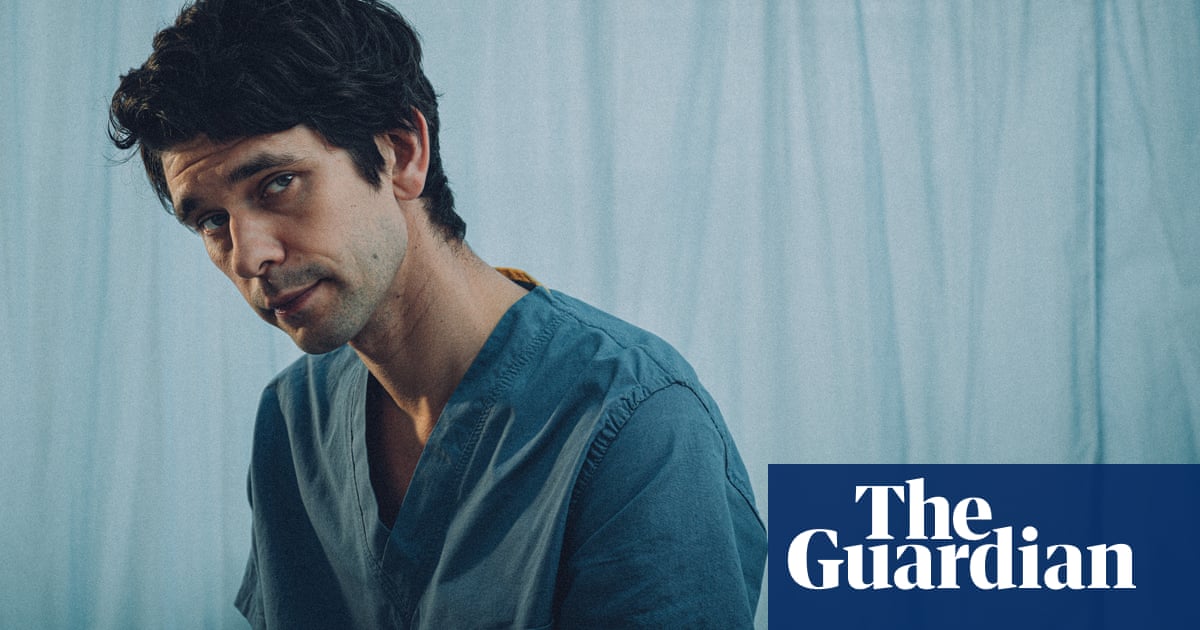
For good or ill, we’ve come a long way since ER. When it aired in 1994, it was the first mainstream global hit to depict the medical profession with any degree of realism. Though it still had George Clooney as the hospital paediatrician so, y’know, it wasn’t literal warts and all, that’s for sure. Over in the UK, launching in the same year, but with inevitably more local – though still heartfelt – acclaim we had Cardiac Arrest. That was all warts, sliced off by the writer and former NHS doctor Jed Mercurio and placed under a brutally unforgiving microscope. He followed that up 10 years later with Bodies, a full dissection of the people, players and power structures that simultaneously support and destroy what could be the best health system in the world, adapted from his own autobiographical novel of the same name.
This Is Going to Hurt (BBC One), looks a worthy challenger to the Mercurio throne, having been adapted by writer and former NHS doctor Adam Kay from his identically titled bestselling memoir. It follows junior doctor Adam – or, rather, at this remove I suppose “Adam”, played by Ben Whishaw – as he works his way through his “Brats and Twats” rotation (that’s the obstetrics and gynaecology ward for those of a non-medical background). This often means being literally elbow-deep in gore (during C-sections or, as we see in one of the opening scenes, keeping a prolapsed umbilical cord where umbilical cords are preferably kept until the baby is out). And it also means always dealing with too many patients at once, hoping for Tracey the good midwife (“I’d let her sew up my sister’s perineum”) and not the panicky one (“Non-reassuring Trace”), and ignoring the kind of profound fatigue that sees you fall asleep in your car for the night before you can drive it home.
Like the book, This Is Going to Hurt is full of images and scenes that you’ll hope to forget, but, more unexpectedly, it also retains the two most difficult aspects of the book (and those, incidentally, that remain with the reader long after the foreign-objects-up-orifices anecdotage has faded).
The first is the fatigue, and the fathomless stupidities, injustices and lack of resources that cause it. The overstretched staff at every level – apart from consultant – are permanently at breaking point, every moment of every day requiring them to dig a little deeper into themselves to deliver basic care without melting down in front of an undeserving, or indeed deserving, patient. (And, both book and drama make clear, there is absolutely a distinction to be drawn between the two.) It is a bone-deep, inescapable weariness, so constant as to become almost invisible – until Adam’s well-rested boss Mr Lockhart (Alex Jennings) pays one of his condescending (if occasionally life-saving) visits, adding another type of twat to the department and reminding you what a reasonable work-life balance looks like.
The second admirable feature is that the drama doesn’t soften the Adam who is presented in the book. Good intentions and compassion (and Whishaw’s fundamental benignity as an actor) are substantially scabbed over by his understandable bitterness and frustration at the junior doctor’s lot. They exist alongside a willingness to bully the few figures lower down the medical ladder than Adam, and a streak of arrogance that suggests an embryonic Lockhart lurks inside more doctors than you’d like to think.
By the end of the first episode, Adam has made the mistake whose practical and psychological ramifications will play out over the series. It adds further to the burdens on his professional and domestic life with his longsuffering boyfriend (Rory Fleck Byrne) – a secret he is keeping from family and colleagues – and reminds us, always, of the life-and-death decisions required from frontline doctors and nurses every day.
The fact that Adam’s story is set in 2006 – pre-Covid, pre-Brexit, pre-the last decade and more of Conservative rule, and all the de-staffing, defunding and privatisation by stealth that has marched in lockstep with it – is perhaps the most frightening thing of all. This is NHS life as it was lived under Gordon Brown and before the worst public health crisis in living memory. It invites us all to re-evaluate and understand just how much this must be hurting now.












